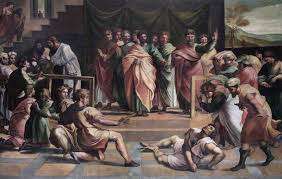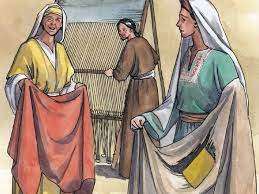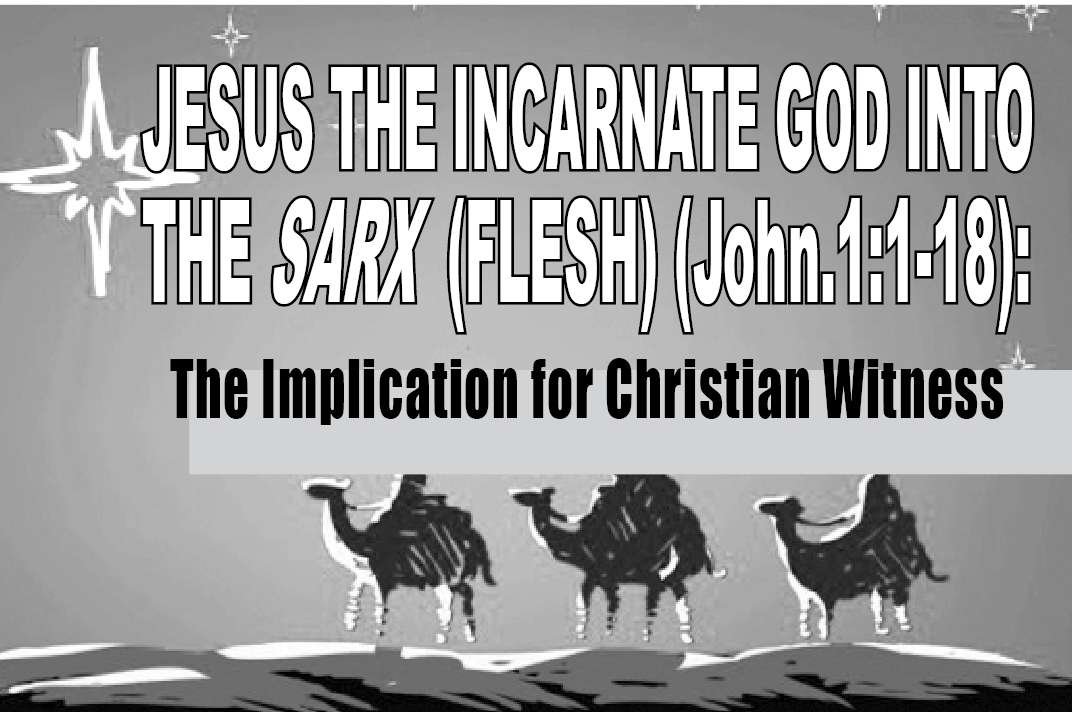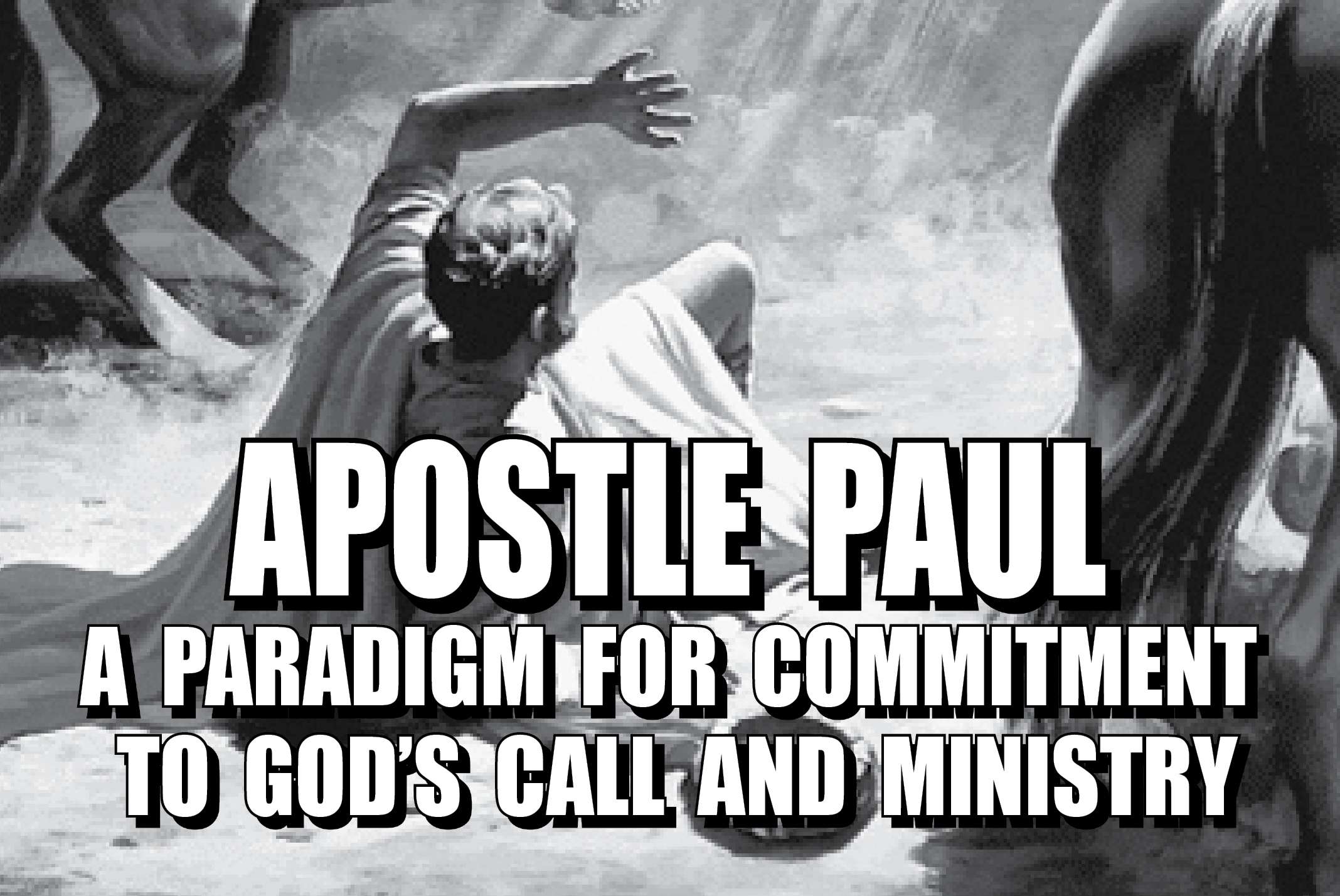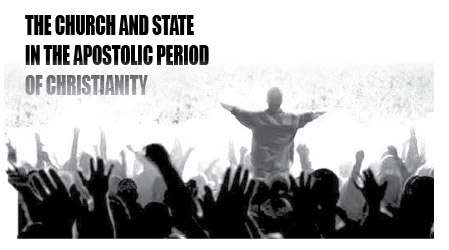
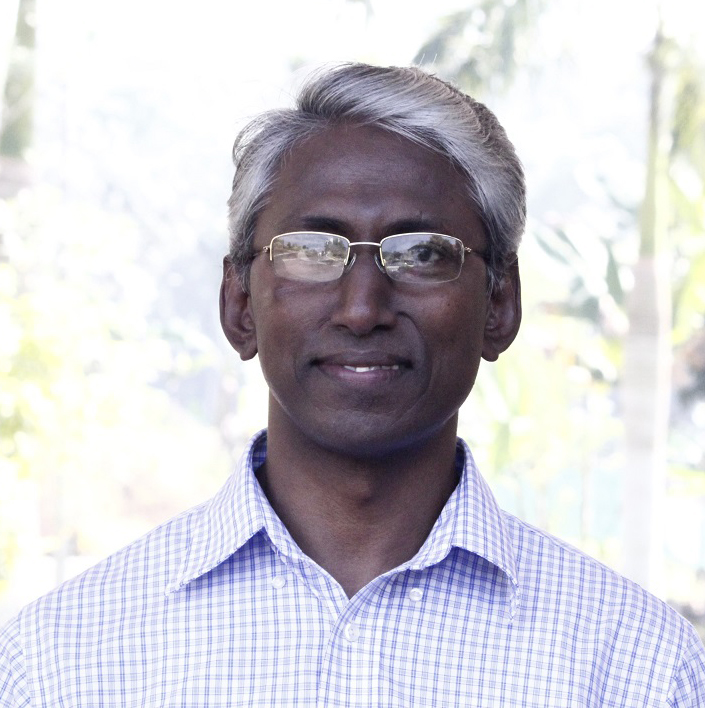
THE CHURCH AND STATE IN THE APOSTOLIC PERIOD OF CHRISTIANITY
Dr. Jose L.
Luke is the main New Testament writer who gives a few details of the origin and growth of the church in the Greco-Roman Jewish world through the historical writing of his second volume called, Acts of the Apostles. In this account, he also explains the relationship of the church with the state during the Apostolic period. A superficial reading of this account gives an impression that the Christians were pro-Roman in their attitude towards the state (Ac. 13:7-8; 19:31,35-37) but Luke also gives a detailed description to the death, imprisonment, court scenes and trials of the Apostles (Ac.12:1-19; 16:16-40; 19:23-41; 24-26).In this context, what does Paul’s arrest, trials, appeal to the state administration and his hopeful appearance before the Emperor Caesar mean? Moreover, what does the church relationship to the political state authority mean by then and now?
The Origin and Growth of the Church
The Church was not considered to be a separate institution from Judaism till the last part of the first century. In the earliest part of the Christian history, the ordinary Galilean disciples were the core of the Church and the followers of Jesus were called as the ‘people of the way’ (Ac.9:2; 19:9, 23; 24:14). The Christian community did not have a strictly defined ‘established center’. Further, they received their community identity as ‘Christians’ (Ac.11:26; 26:26), probably as a nick name in the context of suffering and persecution (cf.1Pet.4:16; Ant.18.3.64).
The early part of Acts portrays the expansion of the Christian community from Jerusalem to Judea-Samaria through the witnessing of the Apostles and the disciples. Later the ministry continued through Philip in Samaria, Peter in Caesarea, the persecuted and scattered believers in Antioch, Apostle Paul and his associates in the major part of the Greco-Roman world.From early on, the state rulers started persecuting the community of believers (church) as we see the death of James the apostle by Herod Agrippa (Ac.12:1-25). The movement of the Gospel to the new geographical locations brought conflict with the religio-political institutions in Philippi, Thessalonica, Athens and Ephesus. Moreover, the missionaries were considered as social deviants and political disturbers and traitors.
Brief Description of the Christian Community (Ac.2:43-47; 4:32-37)
The early Christian societal life is described through the two summary passages in the Acts of the Apostles. We must analyse the first century church in the socio-political context of a stratified social system where the rich exploited the poor. In this environment the church exhibits an alternative Christian politeia (freedom of a city or state) with cardinal virtues of koinonia (fellowship) and philanthrophia (benevolence /love of humanity). The value systems of the state probably were not life affirming to the colonial subjects. But Christian identity is marked by ‘fellowship and the breaking of the bread’ (Ac.2:42), ‘all believers were one in heart and mind’ (Ac.4:32) and ‘had everything in common’ (Ac.2:44). An alternative structure was formulated by the first Century Christian Church by the rich selling their property, bringing the money to the Apostles’ feet (Ac.2:44-45; 4:34-37). Their communal sharing brought ‘honour with all people’ resulting the rapid growth of the Christian community (Ac.2:47). The first century 'ecclesia' brought the rich and poor around the same table to experience the eschatological joy of living together as the family of God.
Paul before the Roman Political Authorities in Philippi, Thessalonica and Ephesus
The early disciples of Jesus faced persecution in the Greco-Roman world mainly from the Jewish religious leaders in and around Judea (Ac.4:1-22; 5:17-42; 6:8-8:3). But later the Apostles faced direct political opposition as they moved outside Palestine (Ac.13-28). For eg., the Apostles (Paul and Silas) encountered state administered persecution in the process of sharing the gospel in Philippi, a Roman colony’ (Ac.16:12). The wholistic salvation (Spirit, Body, and Soul) is preached by the Apostles and salvation has come to so many people including the slave girl and the jailer and the family (Ac.16:16-40). This story reveals the collaboration of the slave trade that goes with the state politics in Philippi. Further, the slave girl was a profit making machine that benefited the state owned business men. It is probable that, the imperial state supported the elite businessmen to exploit the poor and the marginalized for their personal gain.The preachers of the gospel were brought before the state magistrates (Ac.16:20-26) accusing as the disturbers of the state law and order. They were beaten, flogged and finally imprisoned at the instigation of the magistrates without any administrative trials (Ac.16:22-24).
Luke also sheds the light on the other part of the history of the church when the state politics worked against the preachers of the gospel. The Apostles did not run away from the jail as soon as the miracle happened rather they were witnessing to the great work of the Lord to the jailer and his family (Ac.16:25-34). Meanwhile, Paul challenged the mistreatment of the state administration by stating the illegal ‘public beating without a trial’ (Ac.16:37). Paul also ascertains the privileges of the Roman citizenship and boldly demanded the rights before the law enforcing authorities for their personal appearance to escort them (Ac.16:37, 38).
In Thessalonica, the instigators were the jealous Jews who collaborated with the native Greeks and accused the preachers of the gospel as the ‘trouble makers of the entire world’ (Ac.17:6) and they were charged with sedition (Ac.17:7). This is a clear example of the ‘mob governance’ who has taken the law in their hands and where the state officials became mere puppets.
Ephesus was another colonized province where the mob violence took the administration to dictate their terms. Luke portrays the Roman colonized Asia Minor with exploitative structures of sorcery, magic and exorcism (Ac.19:13-20). Magic was another exploitative structure working in Ephesus with the blessing of the city administration (Ac.19:11-20). It is a mixture of different religious traditions working together to stop the proclamation of the gospel under the protection of the state government. The Artemis (goddess Diana) cult was encountered by the preachers of the gospel (Ac.19:23-23). However, there were sympathetic elements among the state administration who intervened on behalf of the missionaries (Ac.19:35-41).
Paul’s Arrest and Trial before the State Administration in Caesarea
Luke describes about the intervention of the state appointed imperial administrator Claudius Lysias rescuing Paul from the religious mob who tried to kill Paul as soon as he returned back to Jerusalem (Ac.21:31, 36; cf.22:22). Paul made use of the permission given by the state administration to defend his case through a speech in Aramaic (Ac.22:1-21). However, he questioned the method the state administrator (the commander) adopted in finding out the truth from Paul and also revealed his Roman citizenship (Ac.22:22-29).
Luke also projects the state administrations’ (the Roman tribune) role in saving the life of Paul from the Jewish religious fundamentalists (Ac.23:12-22). The state administration sent Paul to his superior Governor Felix in Caesarea as a prisoner with a letter explaining the case (Ac.23:25-30).The intervention of the state authorities in rescuing Paul from the angry mob in Jerusalem is seen as a preventive measure which is considered to be positive.
Paul’s Trials before the Roman Governors Felix and Festus
Paul could be seen as the representative of the minoritarean Christian community in its defendant platform before the administrative center. He was in chains (Ac.24:27) and he was treated as a political prisoner by the state administration. At the offensive side, the Jewish religious center at Jerusalem had appointed attorney Tertullus as a legal advocate to prosecute Paul (Ac.24:1-9). The legal advocate framed serious charge against Paul as a ‘rioter’ (anti-Roman), ‘ring leader of the Nazarenes sect’ (Ac. 24:5) and accused him of profaning the temple at Jerusalem (Ac.24:6-8). Paul defended his case confidently before the state administrative court (Ac.24:10-21). Further, giving due respect to the court, he clarified the opponents and challenged the legal prosecutor with proof. He argued for his faith in the ‘God of our fathers’, their scriptures, association with their temple by offering sacrifices and giving alms to the nation (Ac.24:14-18). Moreover, he expanded the idea of resurrection with the hope given in the Jewish scriptures (Ac.24:15,16). The court did not acquit Paul even after they were convinced of Paul’s innocence. In addition, Paul also could speak about the ethical values of ‘righteousness, self control and the judgement to come’ (Ac.24:25). The Roman governor Felix silenced the truth for two years and left him under detention. Luke narrates the state judiciary who sided with the powerful and the wealthy.
The Jerusalem centered Jewish lobby had an upper hand on the state politics in the decision making or prolonging the process as we see in the trials of Paul. They were also requesting an extradition of the case from Caesarea to Jerusalem and conspired to ambush Paul (Ac.25:1-9). Meanwhile, the Jewish aristocracy brought charges against Paul but were not able to prove their charges. Luke portrays Governor Festus also was inclined towards the opponents of Paul due to cowardice and political fovouritism towards the Jewish community in Jerusalem. However, Paul’s response to the state administrator (Governor Festus) challenged the extradition move by stating that “I am appealing to the emperor’s tribunal; this is where I ought to be tried… I appeal to the emperor.” (Ac.25:10,11). He was negotiating with the state administrative center probably as the representative of the minority community. He also wisely made use of the amenities of his Roman citizenship. Luke portrays the heroic stand of Paul through the statement i.e., ‘if I am in the wrong and have committed something for which I deserve to die, I am not trying to escape death; but if there is nothing to their charges against me, no one can turn me over to them. I appeal to the emperor’ (Ac.25:11 NRSV).
Paul was finally tried under King Agrippa II, the representative of the state political rulers of the time (Ac.25:23-32). The gospel witness of Paul in the midst of the military pomp and glory (‘they entered the audience hall with the military tribunes and the prominent men of the city’ (Ac.25:23) displayed the boldness he showed before the state judiciary system. Paul’s speech before King Agrippa was the climax of his defense speech and he did not help Paul in his appeal for deliverance. Finally, Paul is coming to the political center of the time to argue his case before Caesar, the supreme authority over the imperial state (Ac.27:1-28:31). In the end, Luke describes, Paul’s preaching with boldness about the kingdom of God and teaching about the Lord Jesus at the center of the state (Ac.28:30,31).
Paul also addressed the socio-economic issues in the state centers that exploited the marginalized with an alternative culture of the Gospel of Jesus. The state and religious centers work together in collaboration with each other for getting political favours. Paul played the role of an obedient Roman citizen but expressed his counter voices where ever/ whenever it was necessary.
Theological Implication
The collaboration of the Roman State with the nationalistic Jewish religion of the first century becomes a threat for the growth of the church during the Apostolic period. The Jewish cultural nationalism similar to the present day Hindutva cultural nationalism forced the state to persecute the minority Christians. Similar to the deifying of the state leaders of the Roman Empire, in India also directly/indirectly a deification process is on the move. In this background, we have to preach a kingdom of God that goes beyond the national-cultural-racial and ethnic boundaries. The Church needs to speak of God’s kingdom instead of our personal kingdoms through preaching the gospel, healing the sick, and casting out the demons just like the Apostles. The Church builds a community of equals by sharing their wealth. They also transcend the class, colour, gender and ethnic differences.
Paul’s claim of Roman citizenship (Ac.16:37-40; 22:25-29) and his political appeal to Caesar (Ac.25:11-12) give guidelines for the present day church,how to relate with the political state, the rules and the rulers.Paul claimed his rights as a Roman citizen as he encountered the political charges. However, the first century ecclesia did not take a revolutionary step in countering the imperial state rather they have taken a strategic stand of affiliation and distancing at the same time. They also challenged the religio-political power structures that destroy the human values of the time.
The dichotomy between political/spiritual, theological/secular, Church/State probably did not find place in the Apostolic period as Luke explained through the Acts of the Apostles. The compartmentalized attitude will never help the present day minoritarean Christian community who suffers persecution from the religiously supported state government. The recent development in the national politics exhibits the cruel face of the religious fundamentalism that frightens the minoritarean church through ‘saffronizing education’, ‘media’ and administrative bureaucracy.
The church of the new millennium must be a people’s Church that seeks justice and peace for the poor and the marginalized. The western type of ecclesial hierarchy that borrowed the imperial model of white color ministry for the leaders is against the model emanated from the first century ekklesia. The first century ecclesia confronted the imperial state ideology of exclusive nationality, culture and language. They witnessed God’s love, justice and peace to the entire universe.
The imperial custody of the Apostles and their trials in the administrative capitals of Caesarea and Rome bring probable guidelines for the present day Church. The Church strategically affiliates and distances to the reliogio-political centers of the state. Moreover, they confronted the legal prosecution with proof (Ac.24:13). In our present day context also, the Church must appropriate the amenities of the state privileges.She must strategically make use of her citizenary privileges before the political centers (Ac.25:6-12). She should become a bold witness to the gospel with full confidence on the rights of the nation and the authority God has given to him/her (AC.28:30,31). The Church must be aware of her state given rights through the constitution and make use of the privileges similar to Paul’s appeal to Caesar over against the partisan position shown by governor Festus. The Church can also take a step to empower the believers by teaching and claiming the rights of the minorities.

